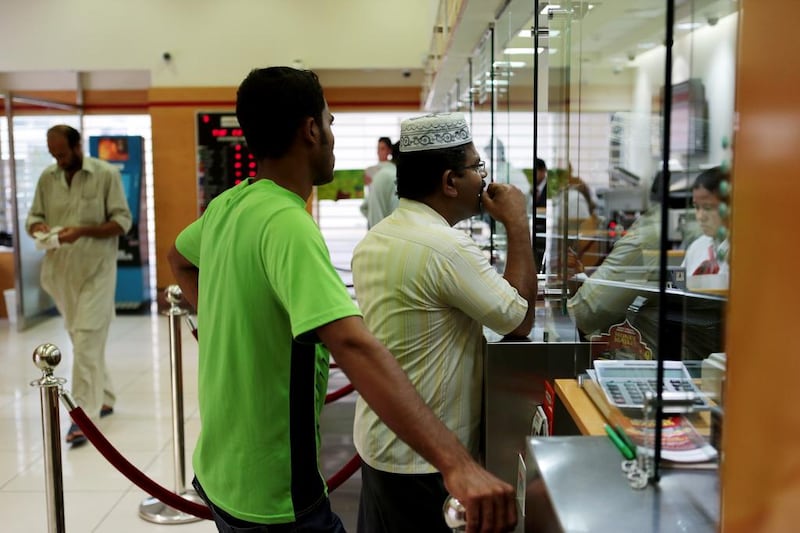ABU DHABI // With a wife and five children to support in Pakistan, Rajab Ali Khan, 38, decided seven years ago to move to Abu Dhabi to work.
He earns Dh750 a month as a mason and his financial situation has improved, but he still finds it a struggle.
“The eldest is 12. I have a big family to look after and not enough money. I send 10,000 (Dh363) to 15,000 rupees home every month but my family struggles to make ends meet.
“There is no option to return. I came here because I really needed a job. New people joining now get paid at least Dh900.”
Mr Khan took a loan of 150,000 rupees to pay the agent who organised his move to the UAE, and it took him two years to pay it off.
He has been working on Saadiyat Island for the past three years.
“The situation here is better than what I faced in Pakistan,” he said. “The food is good and the accommodation is clean, and we are satisfied with it.”
Ejaz Khan, 27, a crane operator on Saadiyat, has been in the UAE for eight years. He is from Karachi in Pakistan and is unmarried, but still has a family of 10 people at home that he tries to help financially.
He earns more than Dh3,000 a month and is able to save.
“Food and accommodation are taken care of and there is not much expenditure here. I am not the sole breadwinner in the house but there are many mouths to feed.
“I think I am better off here in the UAE than in Pakistan.”
Most of the workers on Saadiyat are from Pakistan, India, Bangladesh and Nepal.
Compared with many others in the UAE, they are paid low salaries, but working a maximum of 48 hours a week by law, many feel they are still better off than they would be in their home countries.
“They are not satisfied with the money but don’t have an option and thus they have to stay here,” said Shamsudeen Karunagapally, a legal consultant at Al Kabban Advocates and Legal Consultants in Dubai.
“They have trouble finding jobs in their own countries. They have to look after their families but sometimes it’s not sufficient. Some of them are struggling.”
_____________________________________________________________
More coverage on this topic:
■ Abu Dhabi invests in worker comfort
■ Expat workers' sacrifice for life outside UAE labour camps
■ South Asian expats save in UAE and spend at home
More from 22 March:
■ Special report: A look inside UAE labour accommodation living conditions
■ Life on Saadiyat: catering staff try to please different palates
■ Passport retention by UAE companies less common
_____________________________________________________________
About this package:
The UAE has signed up to nine International Labour Organisation conventions to protect workers’ rights, and in 2006 was the first country in the region to enact a comprehensive anti-human trafficking law. These conventions spurred the Tourism Development & Investment Company (TDIC) to improve the quality of life for 7,000 employees living in workers villages on Saadiyat island. While most workers say they are satisfied with life in Saadiyat Accommodation Village, many have voiced concern about the poor taste of the food. Despite criticism, the purchasing power of the dirham in Southest Asian countries remains a major factor in attracting expatriates to the UAE. Similarly, concerns over passport retention have decreased as the practice has become less common in the UAE.
arizvi2@thenational.ae







